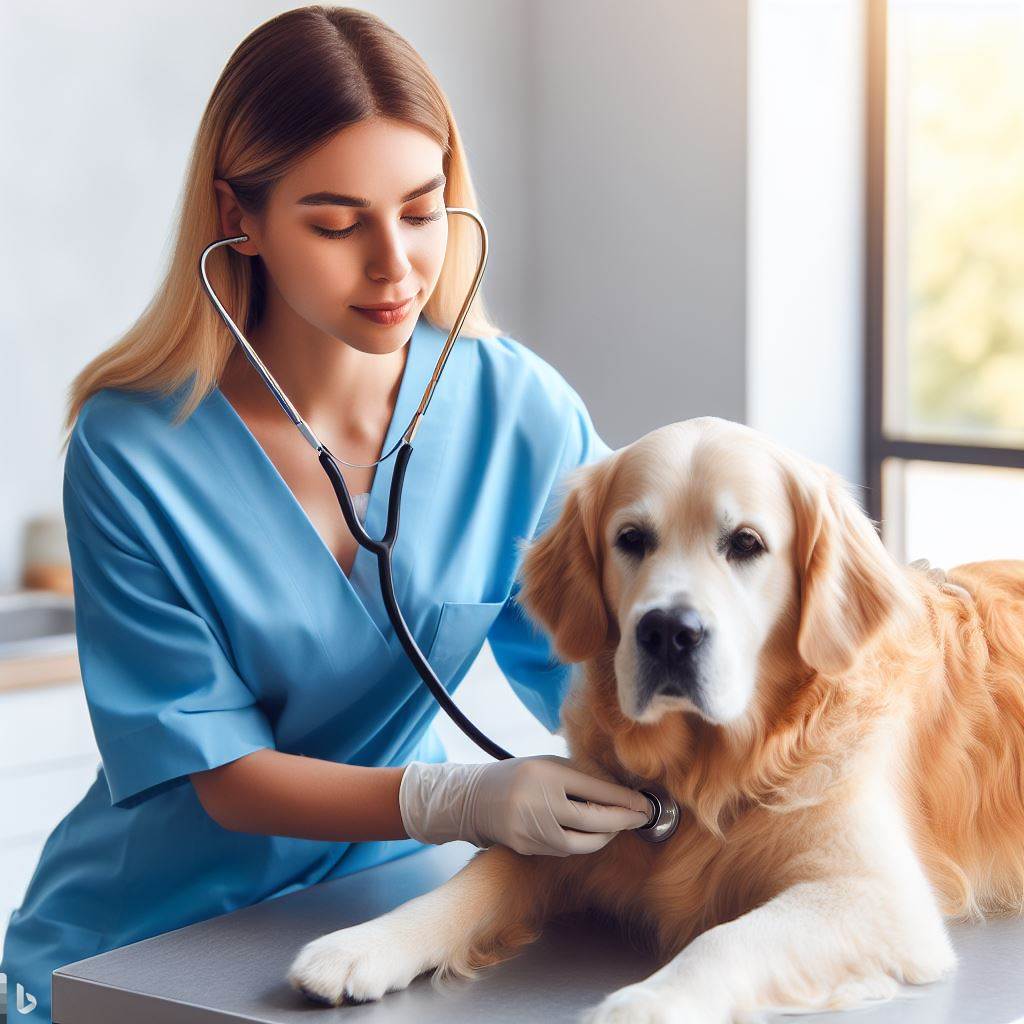Introduction
Importance of veterinarians in emergency and disaster situations
The role of veterinarians in emergency and disaster situations stands as a crucial pillar in the protection and care of animals amidst tumultuous times. Veterinarian Role in Emergency and Disaster Situations
Their significance encompasses a broad spectrum, ranging from immediate aid provision to long-term recovery efforts.
Topic to be discussed in the blog post
This blog endeavors to thoroughly explore the extensive responsibilities and impacts of veterinarians when confronted with emergencies and disasters.
The discussion will encompass their multifaceted roles, the nuanced challenges they confront, and the innovative strategies they employ to navigate these situations effectively.
Thesis statement
The pivotal role of veterinarians in times of crises cannot be understated. Serving as frontline responders, their expertise and commitment are essential in ensuring the welfare and health of animals.
Furthermore, their contributions play a fundamental role in maintaining ecological balance and upholding public health.
Within the realm of disasters, veterinarians shoulder diverse responsibilities, extending from immediate rescues to providing essential medical treatments and aiding in the rehabilitation of affected animals.
This section aims to illuminate the intricate role that veterinarians assume in emergency and disaster contexts.
It will comprehensively focus on their contributions, the challenges they encounter, and the innovative strategies they employ.
Moreover, the section will underscore their critical function in the holistic framework of disaster management.
In times of emergencies, the presence of veterinarians is pivotal in ensuring a comprehensive disaster response.
Their unique skill set, coupled with compassion, plays an indispensable role in safeguarding not only the animals but also the overall well-being of communities and public health.
The overarching thesis statement of this section emphasizes the indispensable nature of veterinarians in emergency and disaster situations.
Their critical involvement not only ensures disaster management but also significantly contributes to animal welfare, public health, and the preservation of ecological harmony.
Read: Rural vs. Urban Practice: Where to Set Up Shop in the U.S.
The Role of Veterinarians in Emergency Situations
In emergency situations, veterinarians play a crucial role in saving and protecting animals.
Their active involvement is essential for ensuring the best possible outcomes during disasters and emergencies.
The following section highlights the key responsibilities of veterinarians in such situations.
Immediate response and triage
When faced with an emergency, veterinarians quickly assess and prioritize animal injuries.
Their expertise allows them to identify critical cases requiring immediate attention.
By efficiently triaging animals, veterinarians can focus on providing immediate care to those in critical condition. This prioritization helps save valuable time and resources.
Additionally, veterinarians excel at providing first aid and stabilizing animals in emergency situations. They are adept at managing wounds, fractures, and other traumatic injuries.
By promptly administering appropriate first aid measures, veterinarians increase the chances of a positive outcome for injured animals.
Evacuation procedures
Veterinarians are responsible for ensuring the safe transportation of animals during evacuations.
They carefully consider the specific needs of each species, taking into account their size, temperament, and health conditions.
By coordinating with rescue teams and animal control agencies, veterinarians ensure that animals are evacuated efficiently and without compromising their well-being.
In addition, veterinarians accommodate the different requirements of various species during evacuations. They consider factors such as temperature control, ventilation, and suitable containers for transportation.
By addressing these specific needs, veterinarians minimize stress and potential harm to the animals being evacuated.
Collaborating with other emergency service providers
Veterinarians work closely with other emergency service providers, forming a collaborative front to address emergencies effectively.
They often work alongside firefighters, police officers, and EMS teams. By actively participating in coordination efforts, veterinarians ensure a seamless response to emergencies involving animals.
Coordinating resources and efforts is a critical aspect of a veterinarian’s role in emergency situations.
By working closely with other emergency service providers, veterinarians streamline communication, identify available resources, and leverage each agency’s unique strengths.
This collaboration optimizes the allocation of limited resources and enhances the overall response to the emergency.
In essence, veterinarians fulfill crucial roles in emergency situations. Their immediate response and triage skills, along with their ability to provide first aid, are instrumental in saving injured animals’ lives.
Additionally, veterinarians play a vital role in evacuation procedures, ensuring animals are safely transported with their specific needs met.
Through collaboration with other emergency service providers, veterinarians maximize their impact and provide the best possible outcomes for animals in distress.
Their dedication to animal welfare during emergencies deserves recognition and support.
Read: America’s Healthcare Rankings: How Do Doctors Make an Impact?
Veterinary Support in Disaster Situations
In disaster situations, veterinarians play a crucial role in providing support not only to affected humans but also to the animals who may have been directly or indirectly affected by the event.
This section explores the various responsibilities and tasks that veterinarians undertake to ensure the welfare of animals amidst emergencies and disasters.
Establishing temporary animal shelters and triage centers
During a disaster, one of the primary responsibilities of veterinarians is to set up temporary animal shelters and triage centers.
These facilities serve as safe havens for displaced and injured animals. It is essential to ensure that these shelters are safe and efficient, providing the necessary care and protection for the animals.
This includes setting up proper enclosures, ventilation systems, and sanitation facilities.
Transform Your Career Today
Unlock a personalized career strategy that drives real results. Get tailored advice and a roadmap designed just for you.
Start NowTo operate these shelters effectively, veterinarians must also implement the necessary equipment and supplies.
This includes medical supplies, food, water, bedding, and other essentials to meet the animals’ basic needs.
Additionally, it is crucial to have a well-organized system in place for managing and distributing these resources efficiently.
Handling large-scale animal rescue and relief operations
In the aftermath of a disaster, veterinarians are often confronted with large-scale animal rescue and relief operations. They need to identify and address various animal welfare concerns during these missions.
This may include providing immediate medical attention to injured animals, conducting assessments to determine the severity of conditions, and making crucial decisions regarding euthanasia when necessary.
Furthermore, managing the rescued animals is an essential task. Veterinarians must document and track the animals for proper care and follow-up.
This involves recording important information such as medical history, treatments administered, and any specific issues or conditions observed.
Proper documentation ensures that rescued animals receive the necessary ongoing care and can be reunited with their owners, whenever possible.
Disease control and prevention
During emergency situations, disease control and prevention are paramount to safeguard the health of both humans and animals.
Veterinarians take on the responsibility of administering vaccinations and preventive measures to sheltered animals.
This helps minimize the risk of infectious diseases and ensures that the animals remain healthy during their stay in the temporary shelters.
Additionally, implementing effective containment strategies is crucial to prevent disease transmission among the animal population.
Veterinarians must establish protocols and guidelines for proper hygiene, isolation, and quarantine when necessary.
Regular monitoring and surveillance of the animals are also vital to detect early signs of any potential disease outbreaks.
In essence, the veterinary role in emergency and disaster situations encompasses various responsibilities.
Veterinarians play a vital role in safeguarding animal welfare during challenging times, from establishing shelters to disease control measures.
Their expertise and dedication contribute significantly to ensuring the well-being of both humans and animals affected by disasters.
Read: Women in Medicine: Challenges and Triumphs in the U.S.

Explore Further: Top Pharmacy Schools in the USA: Rankings and Reviews
Challenges Faced by Veterinarians in Emergency and Disaster Situations
In emergency and disaster situations, veterinarians face numerous challenges that impact their ability to provide optimal care for animals.
These challenges include limited resources and manpower, emotional toll and moral dilemmas, as well as long-term recovery and rehabilitation efforts.
Limited resources and manpower
Coping with overwhelming caseloads and insufficient staff
During emergencies and disasters, the number of animals requiring veterinary care often surpasses the available veterinary workforce.
Veterinarians find themselves managing a high caseload, leading to increased stress and exhaustion.
Additionally, many veterinary clinics may have limited staff, making it challenging to provide comprehensive care to all animals in need.
Addressing shortages and accessing necessary supplies and equipment
In emergency situations, there may be shortages of essential supplies and equipment required for veterinary care.
Veterinarians must adapt and work with limited resources, improvising where necessary to ensure animals receive the medical attention they require.
Accessing necessary supplies may also become difficult due to disrupted transportation and logistical challenges.
Emotional toll and moral dilemmas
The impact of witnessing animal suffering
Veterinarians often witness the distressing and traumatic effects of emergency and disaster situations on animals.
They may be faced with injured or critically ill animals, and their suffering can have a profound emotional impact.
This emotional toll can be challenging to manage, as veterinarians strive to provide compassionate care while also dealing with their own emotional well-being.
Balancing limited resources and making difficult decisions
In emergency situations, veterinarians may face moral dilemmas when it comes to allocating limited resources.
They often have to make difficult decisions regarding which animals receive immediate care and which may have to wait due to resource constraints.
These decisions can be emotionally and ethically challenging, as veterinarians strive to prioritize and save as many lives as possible.
Long-term recovery and rehabilitation efforts
Assisting with reuniting pets and owners
After the initial emergency response phase, veterinarians play a crucial role in reuniting lost or displaced pets with their owners. Veterinarian Role in Emergency and Disaster Situations
This involves coordinating efforts with animal shelters, rescue organizations, and local authorities to identify and reunite animals with their families.
The process can be complex and time-consuming, requiring coordination across multiple agencies.
Providing ongoing care and support for affected animals
Long-term recovery efforts in emergency and disaster situations involve providing ongoing care and support for affected animals.
Veterinarians may be responsible for monitoring the health and well-being of animals, administering necessary treatments, and ensuring they receive adequate nutrition and shelter.
This can be a challenging task, especially when resources are limited, and many animals require extended rehabilitation periods. Veterinarian Role in Emergency and Disaster Situations
To summarize, veterinarians face significant challenges in emergency and disaster situations.
The limited resources and manpower, emotional toll and moral dilemmas, as well as the long-term recovery and rehabilitation efforts, all require careful management.
It is essential to recognize the immense dedication and resilience of veterinarians in providing care for animals during these critical times.
Read: Top Medical Journals and Why Every U.S. Doctor Should Read Them
Conclusion
Main points discussed in the blog post
In this blog post, we discussed the crucial role of veterinarians in emergency and disaster situations.
We highlighted their skills in treating injured animals, providing medical care, and managing public health concerns. Veterinarian Role in Emergency and Disaster Situations
Additionally, we emphasized their role in coordinating rescue efforts and providing vital support to affected communities.
Emphasizing the importance of veterinarians in emergency and disaster scenarios
Veterinarians play a vital role in emergency and disaster situations, not just for animals but also for humans.
Their expertise in handling animal injuries and diseases helps prevent the spread of zoonotic infections and protects public health.
By addressing animal welfare during these crises, they contribute to the overall well-being of communities.
Encouraging readers to support and appreciate the work of veterinarians in such situations
We must acknowledge and appreciate the immense contribution of veterinarians in emergency and disaster scenarios. Veterinarian Role in Emergency and Disaster Situations
Their dedication, expertise, and compassion save lives, both animal and human. As readers, it’s important to support and recognize their heroic efforts.
Whether through donations or volunteering, we can help them continue their invaluable work.
[E-Books for Sale]
The Big Book of 500 High-Paying Jobs in America: Unlock Your Earning Potential
$19.99 • 500 High-Paying Jobs • 330 pages
Explore 500 high-paying jobs in America and learn how to boost your career, earn more, and achieve success!
See All 500 High-Paying Jobs of this E-Book
1001 Professions Without a Degree: High-Paying American Jobs You Can Start Now
$19.99 • 1001 Professions Without a Degree • 174 pages
Discover 1001 high-paying jobs without a degree! Unlock career tips, skills, and success strategies for just $19.99!




